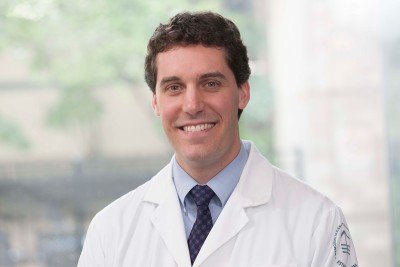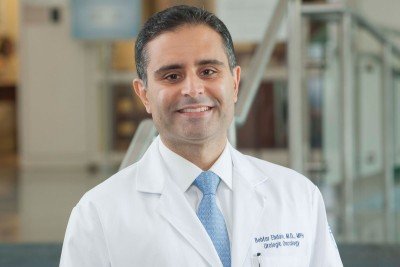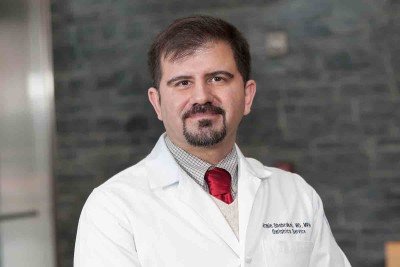
Earlier this year, a question on Twitter went viral:
“What’s something that seems obvious within your profession, but the general public seems to misunderstand?”
Numerous people in a range of professions responded. Given the avid interest, we asked Memorial Sloan Kettering specialists in five of the most common cancers to share a popular misconception about the disease they treat.
Skin Cancer (Nonmelanoma)
Sarah Noor, dermatologist

Skin cancers can appear to fluctuate in size. Basal cell carcinoma (BCC) is by far the most common skin cancer in the United States and is linked to sun exposure. One confusing thing about BCC, says Dr. Noor, is that the skin lesions can appear to change size or shape, causing people to think they are benign. There are many surgical and nonsurgical options to treat BCC. Dr. Noor says the best treatment choice depends on the type of BCC a person has — which can be determined by a skin biopsy and its location on the body — and a discussion with their dermatologist or a dermatologic surgeon. There is also an FDA-approved drug for people who have more advanced disease or cannot have surgery.
Skin Cancer (Melanoma)
Michael Postow, medical oncologist

Skin cancer is not always in sun-exposed areas — or even on the skin. One of the great misconceptions about melanoma, according to Dr. Postow, is that it is always found in areas of the skin that get a lot of sun exposure. Although the sun’s ultraviolet light is a risk factor, melanoma can occur in places that do not get much sun, like the soles of feet and the palms of the hands. In fact, melanoma can also form inside the mouth or in the gastrointestinal or reproductive tracts. Any dark or pink spot that is changing in any location on the body should be checked by a doctor.
Lung Cancer
Kathryn Arbour, medical oncologist

Nonsmokers get lung cancer too. Virtually everyone knows that smoking is a major risk factor for lung cancer. But many people diagnosed with lung cancer have never smoked a day in their lives or quit smoking long ago. In fact, 15% have no history of tobacco exposure at all. Dr. Arbour notes that nonsmokers tend to have different mutations in their lung cancer compared with smokers. Some of these mutations are very treatable with current drugs. It is important that all people with lung cancer are tested for mutations right after diagnosis to help guide treatment.
Breast Cancer
Neil Iyengar, medical oncologist
De-escalated therapy is not for everyone. There has been a lot of discussion lately about de-escalating therapy for people with breast cancer. Dr. Iyengar says that many women now specifically ask for this reduced form of treatment, which includes, for example, receiving less — or even no — chemotherapy or other drugs after surgery. However, he adds, it is well-known among doctors that de-escalation does not benefit everyone. Each person’s breast cancer is different. While recent studies have shown that many women can have a positive outcome with less treatment, like avoiding chemotherapy, there are still people who need more aggressive approaches. “It is certainly an exciting time in breast cancer treatment because we now have the tools to even further personalize our treatment recommendations,” Dr. Iyengar says. “But it is important that people with breast cancer get an individualized care plan from their doctor.”
Prostate Cancer
Behfar Ehdaie, urologic surgeon

Not treating low-risk prostate tumors is safe. To some men, even a low-risk, slow-growing prostate tumor feels like a ticking time bomb. Many choose immediate treatment, assuming it will have a major impact on their long-term risk of dying from prostate cancer. But, Dr. Ehdaie says, studies have shown that men with low-risk tumors who delay treatment and instead monitor the cancer closely with regular doctor visits and biopsies have similar outcomes as those who choose treatment right away. This approach is called active surveillance. Men who opt for active surveillance benefit by preserving urinary, sexual, and bowel function, all of which can be affected by surgery or radiation therapy. At MSK’s surveillance clinic for prostate cancer, more than 90% of men with low-risk disease choose active surveillance.
Colorectal Cancer
Armin Shahrokni, hematologic oncologist

Older people also can handle colorectal cancer treatment. Older people diagnosed with colorectal cancer often think that they are too old to receive treatment, according to Dr. Shahrokni. But a person’s fitness level is more important than age, he explains. Fit older people with colorectal cancer can do as well as younger patients when it comes to having and recovering from treatment. To assess fitness, a cancer care team may ask questions about a person’s level of independence in performing certain tasks. Older people also often believe it’s not worth it to even be screened for colorectal cancer — thinking they’re too old for treatment — but this depends on fitness as well as life expectancy. Many fit people in their 70s, for example, will benefit from screening and, if needed, treatment. It is critical that older adults with colorectal cancer or those considering a colonoscopy ask their care team to assess them for their fitness and life expectancy.








